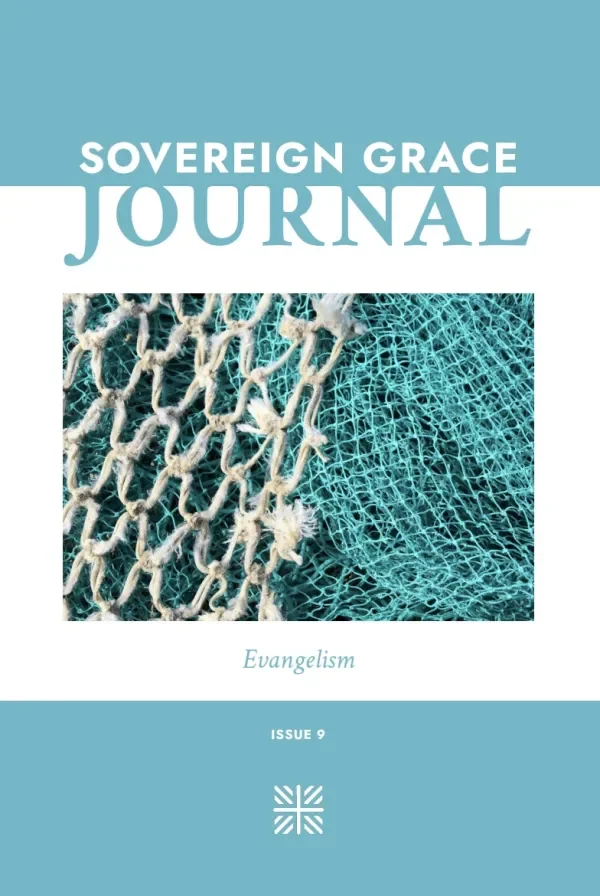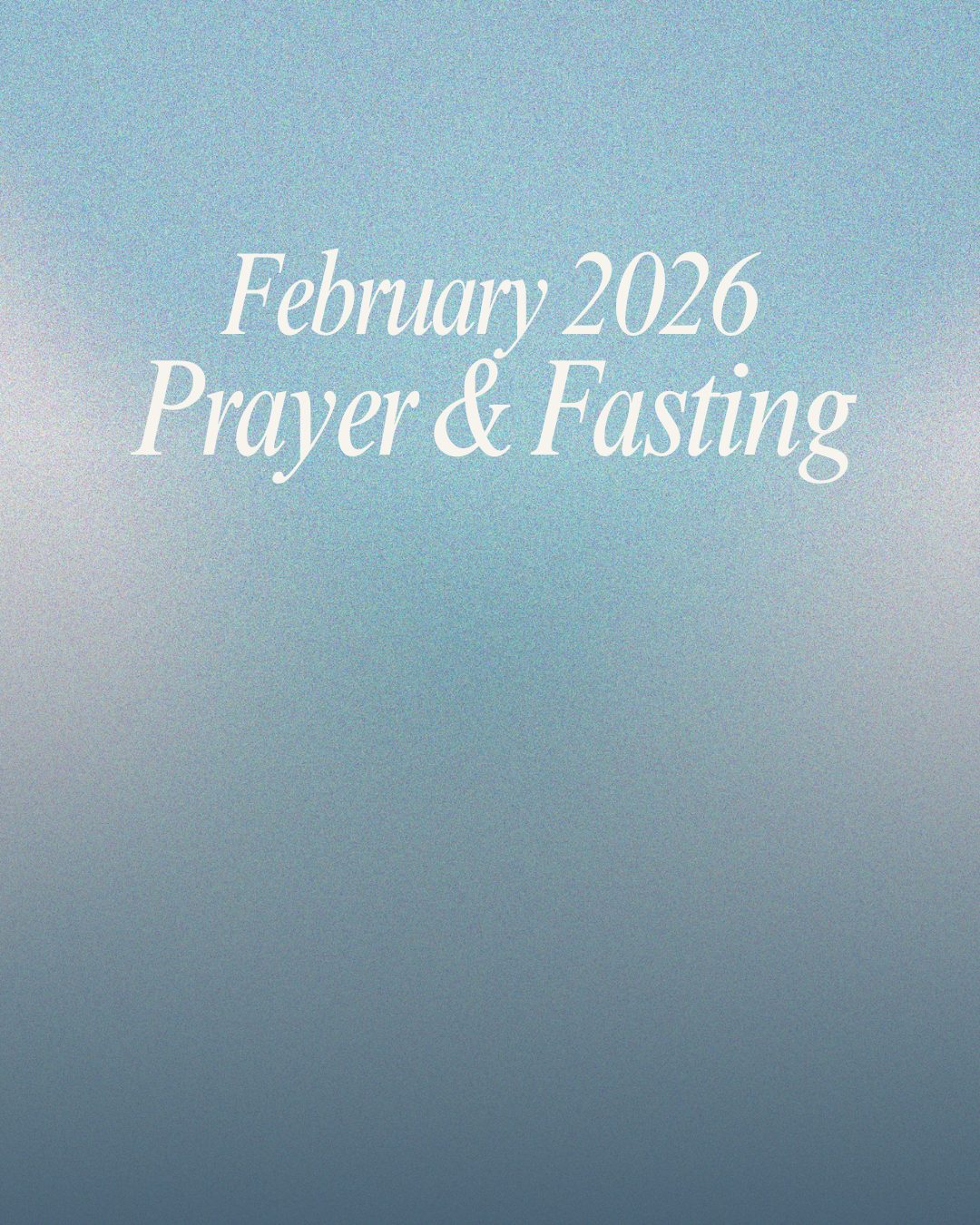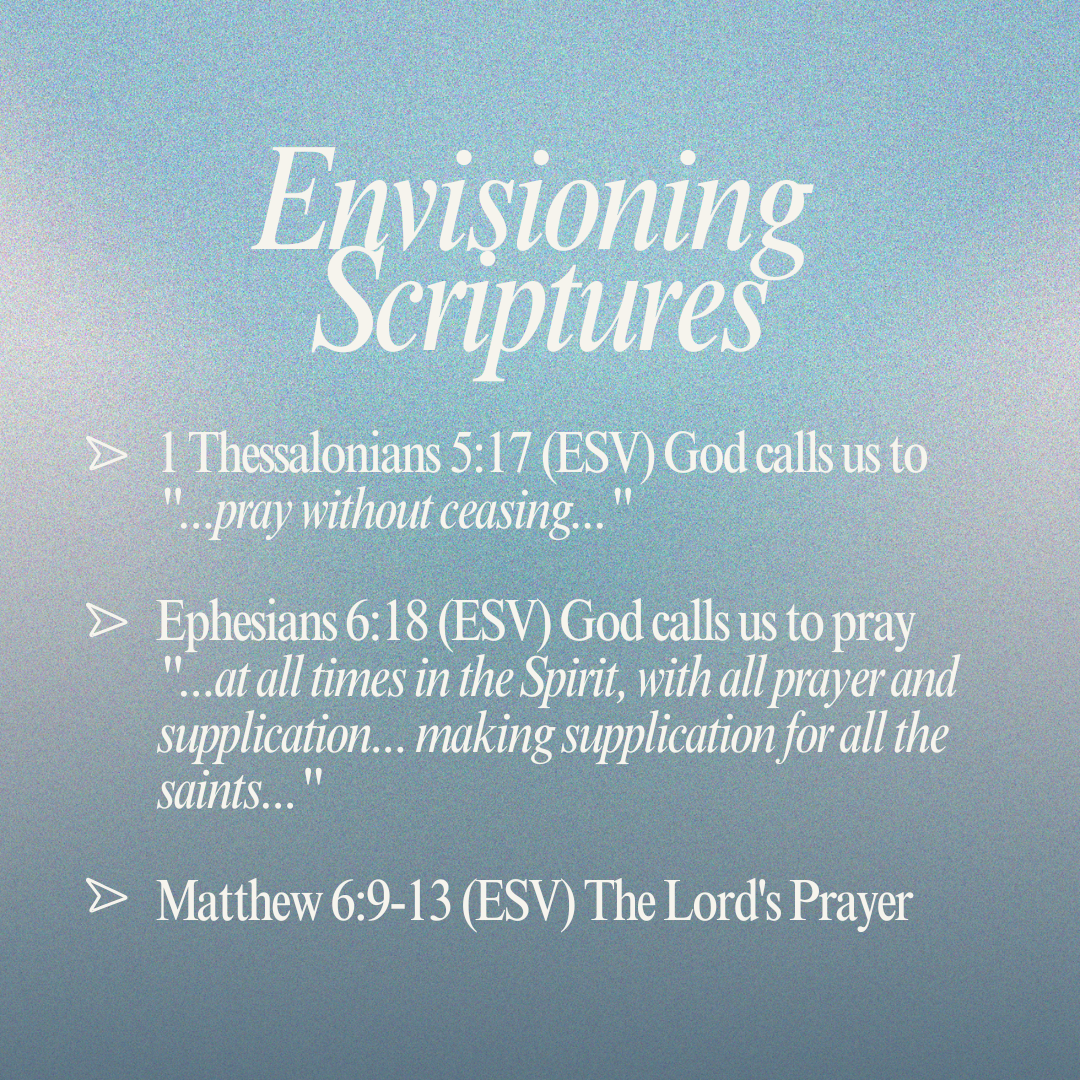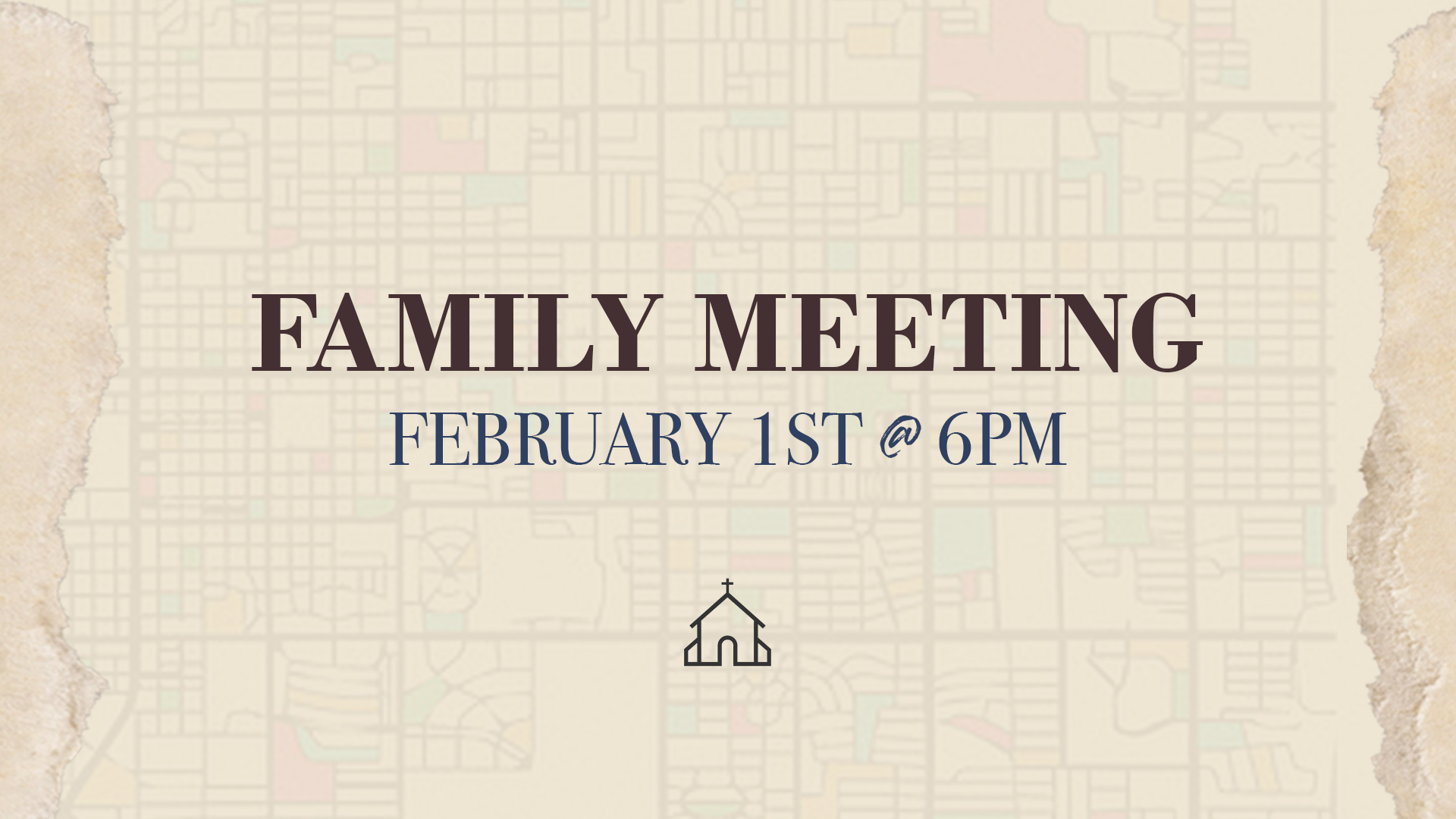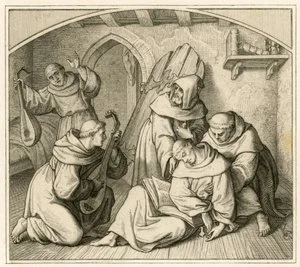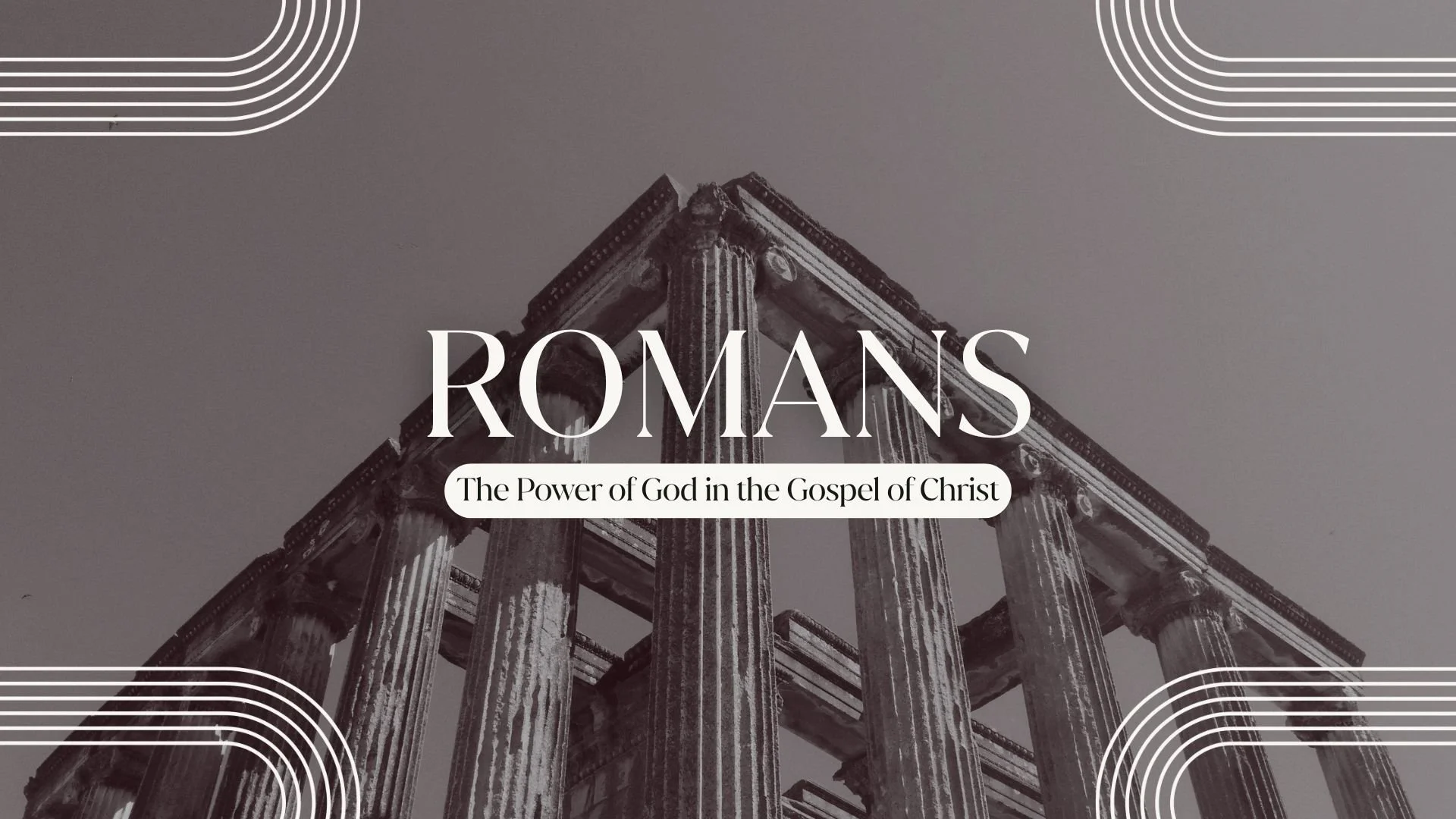Possession of the law is not enough; God requires perfect fulfillment of the law. In this way, the law points to the necessity and sufficiency of the gospel. Below is an outline summary of the sermon for your further study and deeper reflection.
SERIES: Romans: The Power of God in the Gospel of Christ
TEXT: Romans 3:1-8
TITLE: One Great Advantage
PREACHER: Derek Overstreet
SERMON EXCERPTS:
All quotes and text emphasis are taken directly from the pastor’s notes.
”If you were a first-century Jew, your worldview probably went something like this: God promised Abraham that his family would be blessed and inherit the world as God’s chosen people. As a Jew, I am part of Abraham’s family, and God always keeps His promises. Therefore, whatever I do, God’s promises are mine. So all this talk about the need for repentance and heart change, it’s good for the Gentile but not necessary for me. It’s good to be Jewish!”
“In Ch 2, Paul put a dagger through that arrogant perspective as he brilliantly showed that just because the Jews have the law does not mean they are exempt from God’s judgment. Possession of the law is not enough; God requires perfect fulfillment of the law. In this way, the law points to the necessity and sufficiency of the gospel.”
“Paul went on to explain how their sacred circumcision has no salvific value unless it is an inward circumcision of the heart, which is the mark of a true Jew. This is how he ended Ch 2.”
“With those words, Paul radically redefines what it means to be a Jew. A true Jew is not a matter of the law or circumcision; it’s a matter of the heart that the Holy Spirit has regenerated. With one stroke of the pen, Paul, as it relates to salvation, reduces the Jew to a position of complete equality with the Gentile before God. Given the Jewish mindset we imagined earlier, this is a serious shock factor.”
“Knowing that, in our text, Paul anticipates the pushback by staging an argument, if you will. As I studied the text, I decided not to break his argument up with points. So we will walk through it, then talk a bit about how to apply it. He begins with an objection.”
“Wait a minute! If everything you just said in Ch 2 is true, then what’s the benefit of being a Jew? What’s the value of how we live our lives? Today, we might object—Pastor, are you saying becoming members, making Sundays a priority, raising my kids in the church, and serving on Sundays is worthless? Now, you would think Paul’s answer would be—YES, worthless! Instead, he says—read verses 1-2.”
“The fact that Paul says—To begin with—means he has a whole list of advantages in mind. You can read that list later in 9:4-5. But here Paul just mentions one, the most important one—You have the Word of God (OT Scriptures).
- The Word of God that describes the glorious and eternal nature of God as the all-powerful Creator and Sustainer who is perfect in holiness, love, righteousness, and justice.
- The Word of God that reveals man’s purpose and need for God.
- The Word of God that spells out His covenantal plans, blessings, and promises through Abraham.
- The Word of God that explains how to live and worship before God.
- The Word of God that not only warns those who reject Him, but mercifully reveals their only hope in the coming Messiah, Jesus.
We get a sense of this with Timothy, who was ‘brought up with Scripture that makes you wise for salvation.’ The Jew has every advantage because they have God’s Word that reveals the covenantal designs, desires, and demands of His salvation plan.”
ILLUSTRATION: It’s a wonderful thing to have a Bible—Today, we have the full revelation of God. Listen and share the Word of God.
“The Word of God is active and alive, revealing, convicting, encouraging, calling us to repentance and faith, drawing, shaping, and transforming our minds and hearts to Christ. It’s a wonderful thing to have a Bible.”
“Here’s the big question Paul anticipates for the Jew. What if some refuse to obey and submit to your Word? What if some don’t embrace Christ? If Jews are in the same boat as the Gentiles (1:18-2:29), does their unfaithfulness nullify God’s promise for Jewish salvation? No!”
“Paul strikes hard at any notion that God is unfaithful in any way—(4) By no means! (Absolutely not! Not in a thousand years! Don’t even go there!) Let God be true though everyone were a liar.”
“In short, God is always true to His promises. That means He will be faithful to His covenantal promises through Abraham. Now, that is not to say every Jew will be saved, as we will see in Ch. 9-11 and have already seen in Ch. 2. Any advantage the Jew has does not exempt them from their need to believe in Jesus Christ for salvation as the only way to escape God’s wrath. But Paul’s point here is that it doesn’t matter what everyone else is like. God is always true. He is always righteous. He is always just. We make promises, and we break promises. God is not like us.”
“God is not like us. He is always true and faithful to His nature and character. Where do you need to lay hold of this unchanging truth?”
“Now, here’s the hard part: God’s faithfulness is shown, not only in His promise to save graciously, but also in His promise to judge and punish. To demonstrate this, Paul quotes David.”
“These words are from David’s humble repentance for adultery in Psalm 51, which is the greatest text on repentance in the Bible. The words that immediately precede what Paul quotes here are—Against you, you only, have I sinned and done what is evil in your sight, so that (4b) you may be justified in your words and prevail when you are judged. David admits his guilt before God AND That God would be right to pour out His wrath on him for his sin. This is why David’s repentance in Psalm 51 begins—Have mercy on me O God. David knows God would be just and faithful to His Word and character if He punished David for his sin.”
“So, Paul’s point to the Jews is that God’s covenant faithfulness is expressed not only in His promises to bless those who serve and worship Him, but to judge and punish those who do not—Gentile or Jew. The ultimate truth here is that God’s glory is revealed in his faithfulness to save (we know and will see in 21-26 through faith in Jesus) AND His faithfulness to pour out His wrath on all who reject Jesus because in doing so He is true and faithful in the highest way—to Himself.”
“The objection in 5 is clear. It goes like this: (5) If I fail to keep the law and live in covenant with God, and God is faithful when He punishes me for my unfaithfulness, then wouldn’t God be unrighteous (wrong) to inflict His wrath on me? If my sin bears witness to the holiness of God, if my badness reveals God’s goodness, then whose really right and whose really wrong? The objection in 7 is the same, said differently: If through my lie the truth (faithfulness of God) is revealed, and the result is actually His glory, if being bad makes God look good, then why am I being condemned as a sinner? (8) Why not just keep sinning so that God continues to be glorified? God should be happy with me because, after all, isn’t it all about God’s glory? Paul’s response in 6 is emphatic—By no means! For then how could God judge the world (anybody)? It’s like Paul is saying—That’s the stupidest thing I’ve ever heard. It’s absurd to think that’s what I am saying. I’m not preaching cheap grace as some are slanderously accusing me of. People who say God is wrong to condemn them rightly stand condemned.”
“And they do. They stand condemned because they see no need for the gospel. Therein lies the point today: When we don’t see our sin and guilt in light of God’s holiness, which includes His holy hatred for sin and commitment to punish sinners, we will be blind to our desperate need for salvation that only the gospel of Jesus Christ can provide.”
“When God says our sins are forgiven in Christ Jesus (Colossians 1:13-14), our sins are forgiven. When God says in Christ He will give us mercy and grace in our need (Hebrews 4:16), we will receive mercy and grace in our time of need. When God says that nothing can separate us from the love of Christ (Romans 8:39), nothing will. All that is true and God being faithful to Himself. And so is this: When God says He disciplines His children (Hebrews 12:10), we will be disciplined for our sin. Just as a parent shows themselves to be a faithful parent when they discipline their children, God shows Himself to be good, loving, and faithful when He disciplines us. Is that a category for you in your relationship with God?”
ILLUSTRATION: A friend at the front end of fighting cancer—I do see part is trial/suffering, and part the Lord’s loving discipline to change my lifestyle
“Where might God be disciplining you, bringing you back into line with His design and desire for you in Christ? Don’t ignore or minimize your sin. Don’t rebuff His sanctifying work. The Lord disciplines those He loves in Christ Jesus. And you can embrace His discipline with joy and hope because you have One Great Advantage: God can be merciful to us because He has justly condemned us in Christ. It is only in Christ that we are rescued from judgment. Praise God that He is faithful to judge and also that the judgment that we deserved landed on Christ—R.C. Sproul”
ADDITIONAL SCRIPTURE:
Numbers 23:19
Psalm 51
QUOTES:
Frank Thielman - “When his punishment of David goes under review in the court of right-thinking human opinion, God wins the case: he is found to be right and true even when he must punish his people for their sins.”
APPLICATION:
Unbeliever: There is nothing you can do that will shield you from God’s judgment on the final day. Your only shield is Jesus Christ. My plea is urgent—there is no guarantee of tomorrow.
This text is important to the Christian life. Remember the perspective of the first-century Jew we reviewed at the beginning. Here’s the perspective we are vulnerable to today: God promises that all that He saves He will keep saved. Once forgiven, always forgiven. God has forgiven me, I have been saved by grace, and I know God always keeps His promises. Therefore, however I live, God’s promises are mine. I don’t need to worry about sin. I don’t need to worry about God’s discipline. I can live as I choose because I know nothing can separate me from the love of Christ. It’s good to be reformed! I don’t believe for one minute that anyone here would ever say that. But we can all live that way, can’t we? Ignoring and minimizing our sin in the name of sweet saving grace. Our lives can functionally reveal that we believe we are shielded from God’s discipline because we are good church members, we read our Bibles, gospel-centered parents, or we hang with all the right people.
SCRIPTURE MEMORIZATION:
Romans 3:20-26
SONGS FROM THIS SUNDAY:
Your Great Name We Praise
Only A Holy God
Yet Not I But Through Christ In Me
SCRIPTURE READING: Jude 24-25
Your Words Are Wonderful (Psalm 119)
It's Your Grace
NEXT WEEK’S PASSAGE:
Romans 3:9-20
THE BOOK OF THE QUARTER:



